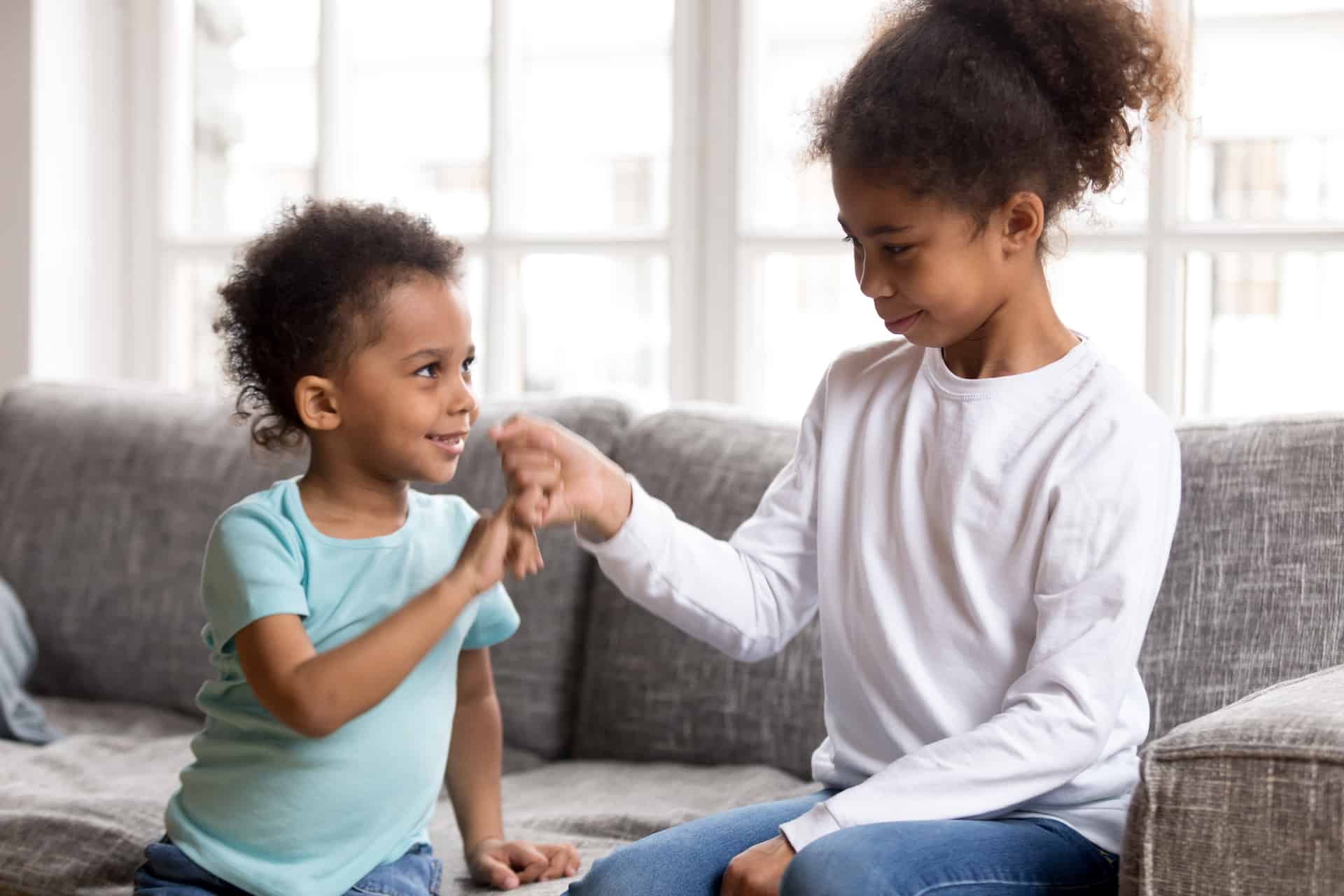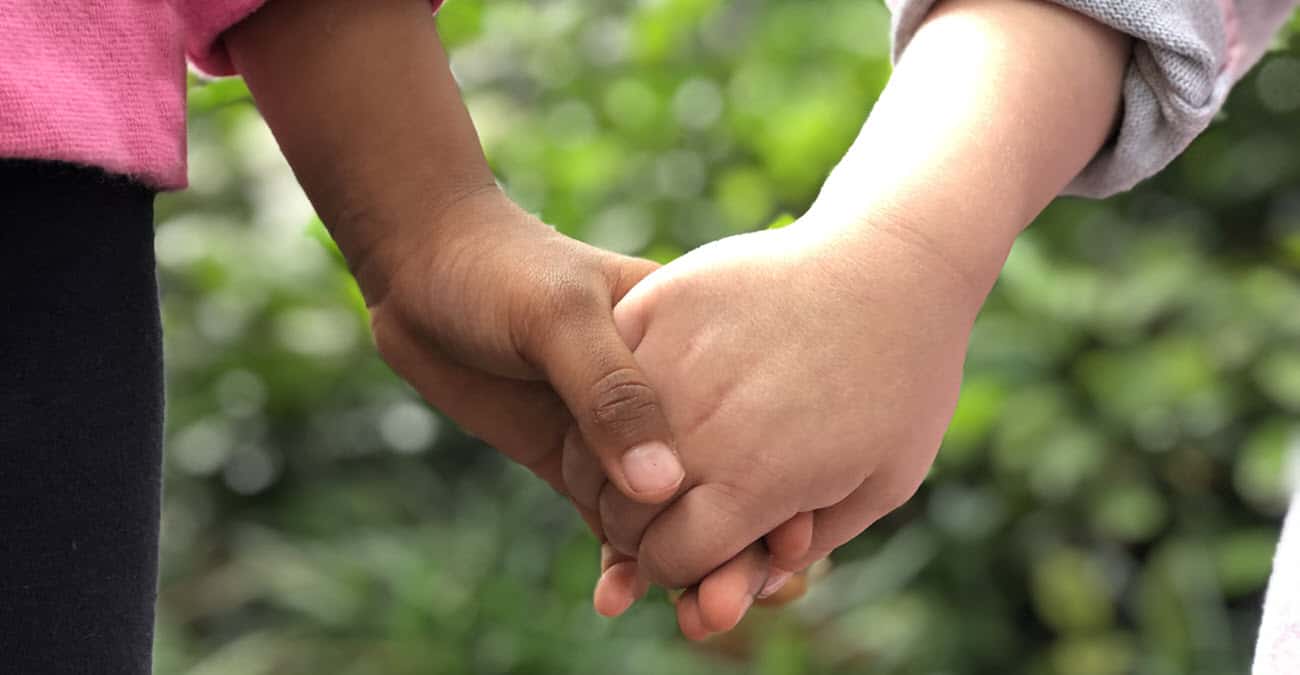Our children make mistakes. We can help them learn how to make amends. Help children shift from throw-away apologies to repairing the wrong-doing.
Mistakes are a part of life. We all make them. Hopefully, we even learn from them! Intellectually we probably understand that mistakes are part of our children’s process of learning and growing. Yet as parents and caregivers, it can be hard to know how to handle situations when our children don’t do the right thing.
Think about those times when your child is rude, breaks something, or hits a playmate. In those moments, we all too often want our children to immediately apologize. However, apologies can quickly become an easy and surface-level response. Plus, our children might not (yet) feel sorry for what they did.
Although apologies can be a good first step, they are just that…a first step. Really it is the process of making amends that is the most meaningful.

Making Amends
How do we support children who have made a mistake and aren’t sure about how to make amends? Genuine apologies certainly aren’t easy, but it’s a lot easier to apologize for a mistake than it is to fix it. Diane Gossen’s book, Restitution: Restructuring School Discipline, provides a framework for helping young people learn from their mistakes and hopefully make the right choices in the future.
The definition of restitution revolves around the restoration of something damaged, lost, or stolen, which basically means restoring what was affected to its original state. When we make mistakes, it can feel like squeezing too much toothpaste out of the tube. Getting the excess back in can feel impossible. Yet the process of cleaning up and restoring what we can is how we make things right again.
Recipe for Restitution
Gossen’s recipe for restitution is designed to help the mistake-maker experience a healing process, which can be considered self-restoration. According to Gossen, the process of making things right again should include the following components:
- The person(s) affected by the mistake will feel that the restitution is acceptable and appropriate.
- The restitution will require effort.
- By making amends, the mistake-maker will be discouraged (or at least not encouraged to repeat the mistake.
For the process to be really exceptional, three other characteristics may be involved:
- The restitution will be logically connected to the mistake.
- The process will connect to a deeper understanding of the big picture of how people treat each other.
- The experience will actually strengthen the mistake-maker.
In supporting the process of making amends, we must be very careful to refrain from criticizing, inducing guilt, or expressing anger. Also, we must not feel like we are overextending ourselves. The person trying to fix the mistake must own the process.
Opportunities
If we are attentive to opportunities for our children to make things right, we can approach mistakes differently. For example, if your child has been rude to someone, take some time after the fact to hear what your child was feeling at that moment. Perhaps they were upset about something that happened prior. Or maybe they were just hungry. The key is to let your child know that you are genuinely curious about what they were feeling. In the process, you can acknowledge and affirm those feelings. Likely your child already feels remorse for how they behaved. The next step is to brainstorm ways to make amends for those actions. Often children want to start with an apology, so it’s worth exploring if they want to apologize with words or with actions. From the apology, you can start to dig into how to make things right. For example, think together about how the relationship can be repaired so that the other person feels secure and safe, rather than uncertain or hurt.
Perhaps your child, in a fit of frustration, ends up dropping a plate on the floor. When it shatters, the trick is to not react. Rather, let your child feel the intensity of the moment. Take some deep breaths. Offer to help and yet be clear that all the broken pieces need to be cleaned up so they don’t cut anyone’s feet. The process may be long and effortful. Yet your child’s care of the broken plate is part of the experience of making amends. Later, you can acknowledge how hard your child worked to fix the mistake.
A similar process applies if your child hits a playmate. Staying non-reactive is especially important in these moments, as we are modeling how to stay in control when emotions get heightened. Check-in with the hurt child to make sure they are okay. Then wonder about and acknowledge your child’s feelings. “You seemed really frustrated and then you hit. It can be hard when we have big feelings. It’s also not okay to hit.” There is no shaming or forced apology. Just a clear translation of what happened. When your child feels calm and grounded, you can offer some ways to make amends. “I wonder how we can show your friend some kindness.”
Younger children need our support in working through these steps. They often will need some modeling or suggestions for restoring the relationship or repairing the damage. As our children mature and internalize the restitution process, they will need less guidance and perhaps only a bit of gentle support.
If you are curious about how all of this works amongst a community of children, please schedule a tour of our school. We would love to share how we help children embrace mistakes as part of their learning!



